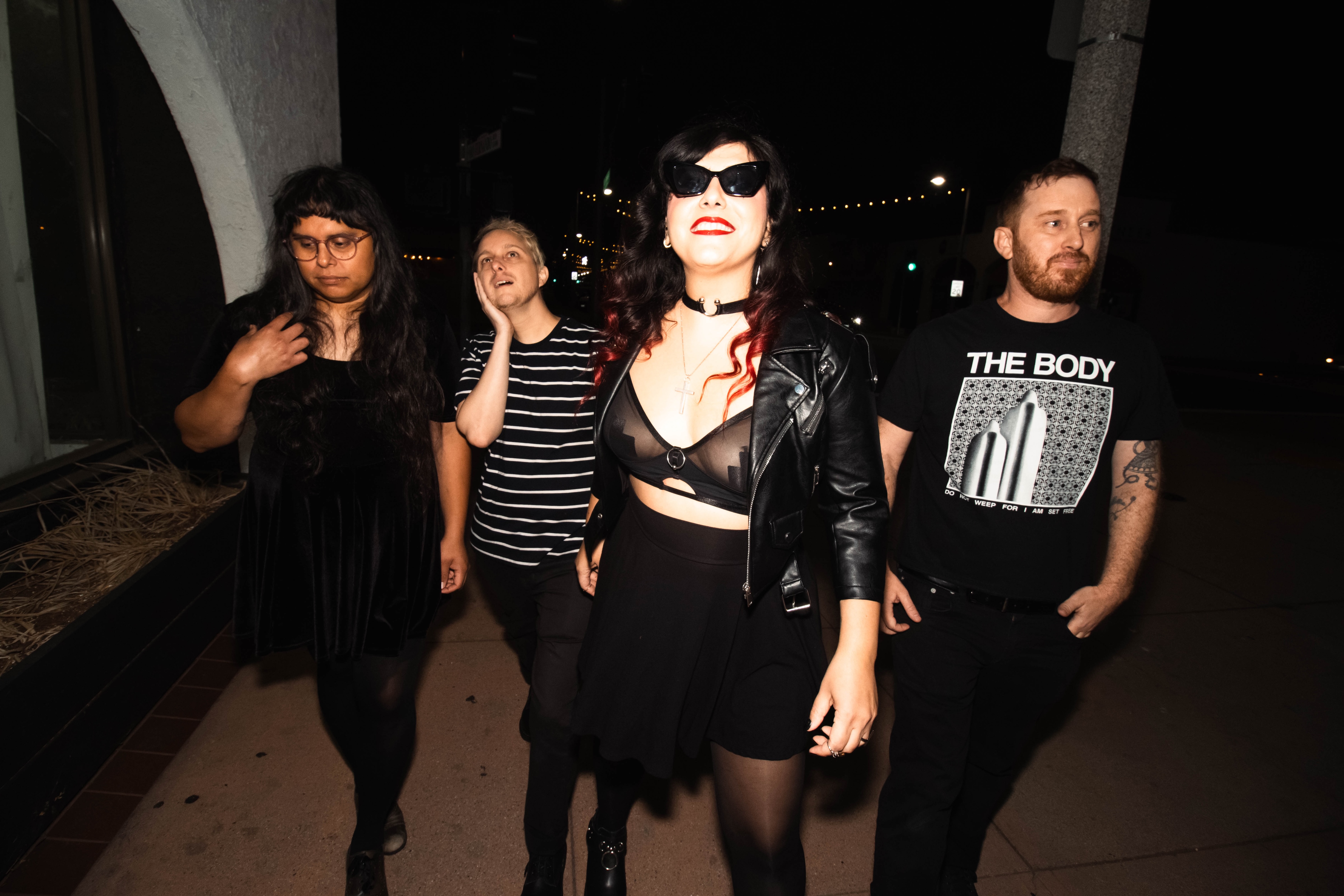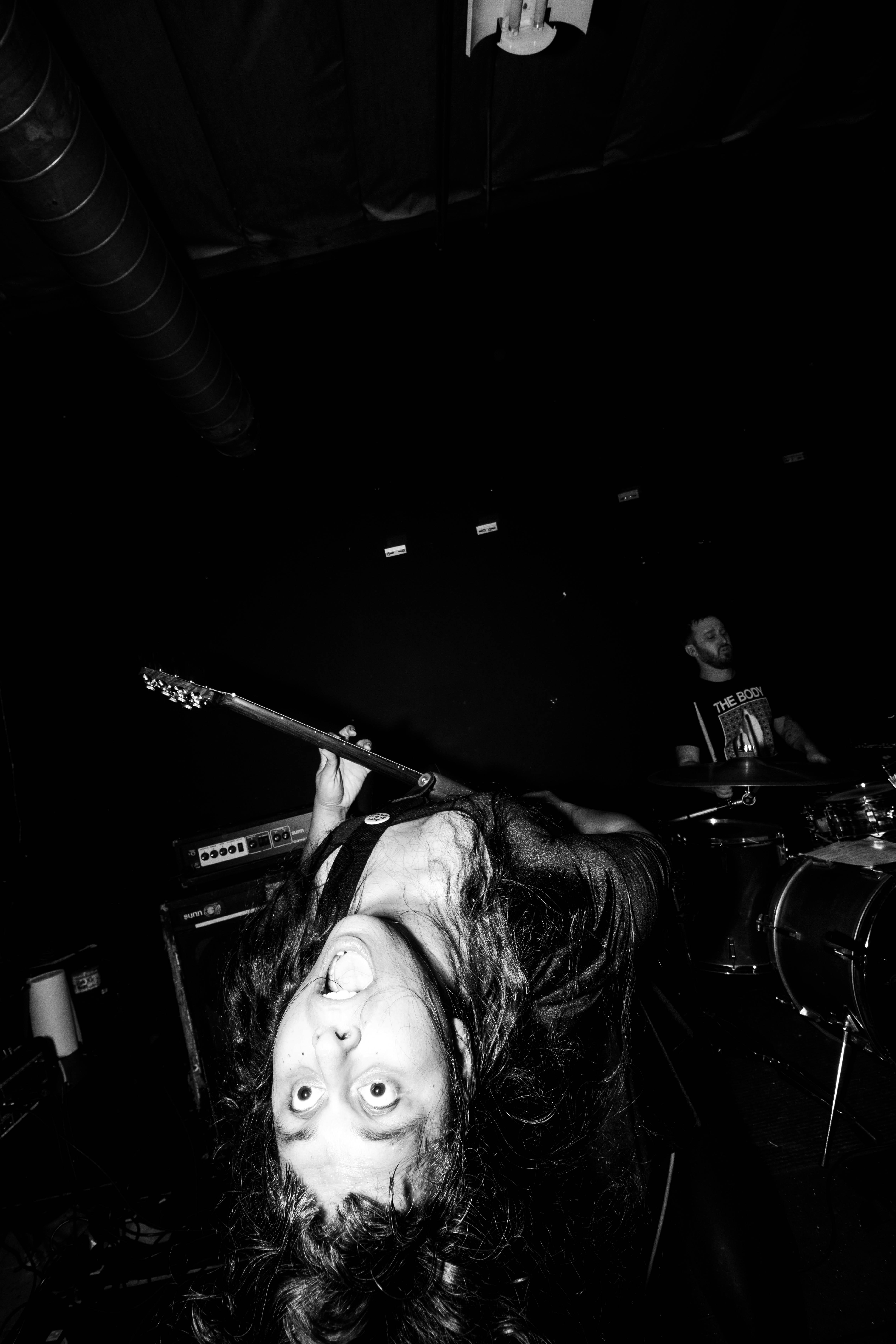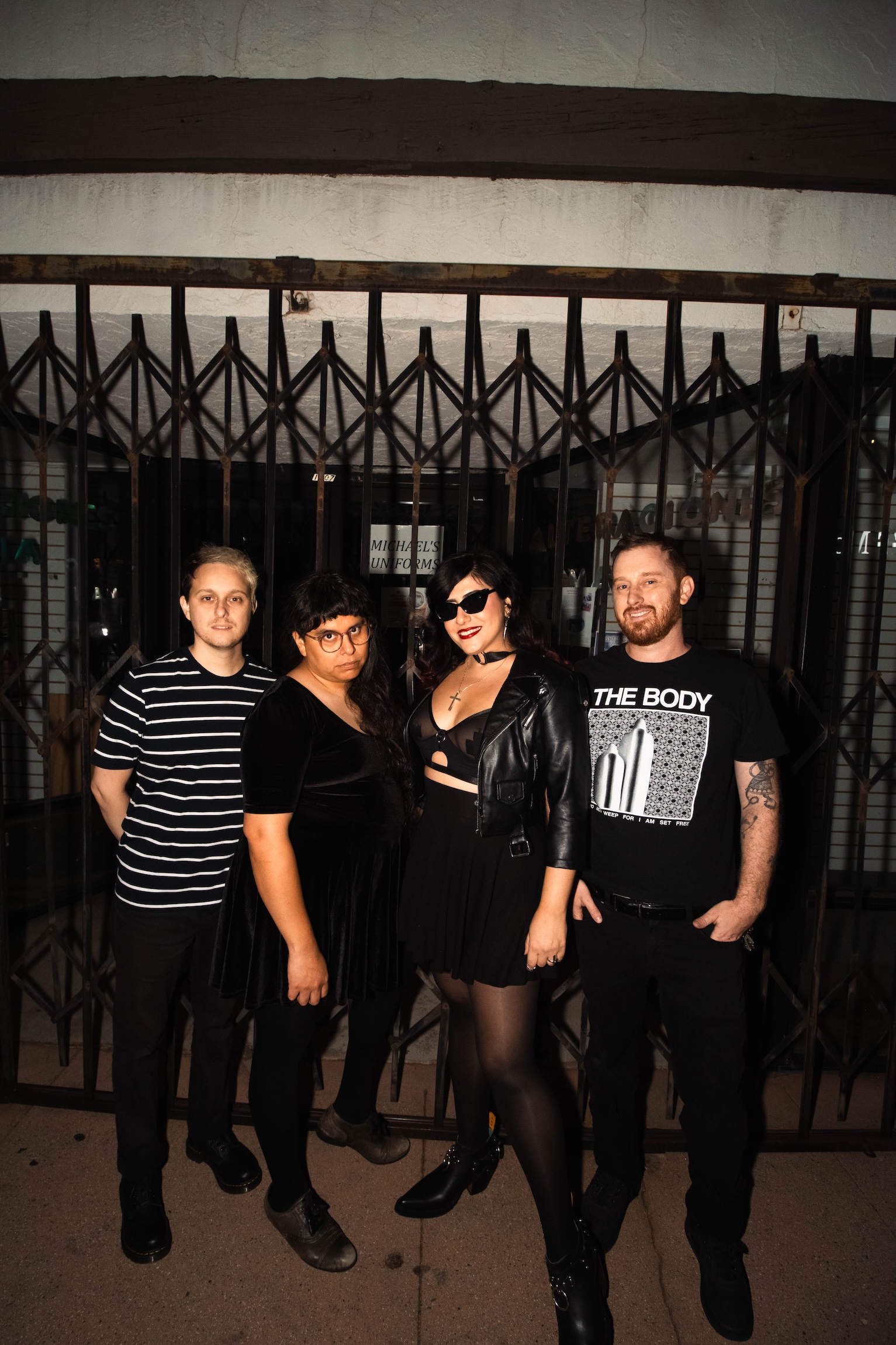F L A U N T


If you’ve been keeping an ear to the underground, chances are the name Taleen Kali has already crossed your path. The L.A. band has been praised by KEXP, Bandcamp, and even Henry Rollins, but what really sets them apart is the way they fuse shoegaze haze, punk grit, and moments of unexpected sweetness. Their shows feel like stepping into another dimension, equal parts loud, hypnotic, and full of spirit.
This fall, Taleen Kali is back with “Crossed,” a track that dives into loss, memory, and finding light in darker spaces. The track shows a band unafraid to lean deeper into the shadows while keeping their cosmic edge intact. Before they hit the road for more tour dates, we caught up with Taleen to talk about the new release, the story behind it, and where this new chapter is taking them.

“Crossed” is a darker, ethereal turn for the band. How did this direction develop, and what inspired the sound of the track?
These new songs came about after we finished touring our first full-length album, "Flower of Life." Although touring and releasing the album was an amazing experience, there was also so much that went down for me at the end of 2023 that bled into all of 2024. I started listening to a lot darker-leaning music to cope with that heavy life shit. Since I was navigating a lot of change and loss, a lot of it ended up leaking into the music I began to write.
You mentioned that the opening line, ‘Rose is a rose,’ was inspired by Gertrude Stein and personal experiences with loss. How did grief influence the writing and recording process?
I'd spent hours lost in tides of endless grief and didn't have much capacity, so short-form writing was very comforting during that time. Even though I'm a huge bookworm, I'd only be able to read and write in spurts. Sometimes an entire song would come to me all at once, but it would usually be in fragments. That's why there are so many repeating phrases in "Crossed" and the A-side we released before it, "Aepex." It was like my memories were in a playback loop, and that's reflected in many of the lyrics and guitar lines.
The artwork for “Crossed” features your grandmother’s Ethiopian cross. What does including that imagery mean to you, both personally and artistically?
My grandmother was Armenian and born and raised in Addis Ababa, Ethiopia. I ended up inheriting the necklace in 2023 after she passed in September 2 years ago. I wear it all the time because it reminds me of her, even though, as the song says, "nothing will be the same again." I felt so marked by her loss that integrating her jewelry into the artwork is part of my tribute to her love.
This is the first time you co-produced tracks with Josiah Mazzaschi and Chris King. How did stepping into the co-producer role affect your approach to making music?
Things feel more collaborative at this stage in my career versus the way we made albums in the past. I'm always heavily involved in the mixing process in the studio after we record the songs, but in the past I'd treat my producers more as mentors rather than collaborators--I'd show them my ideas and ask them for songwriting feedback, and we would do heavy pre-production together before booking studio time. That process taught me so much about writing and recording, and I wouldn't be where I am today without them. For these new batches of songs, we did all the pre-production on our own as a band, and I brought in my live rig into the studio for the first time, namely my Fuzz War pedal by Death By Audio and my Vox AC15 guitar amp. I think the new stuff is a lot more live and feral sounding, closer to our shows than ever before, rather than a polished, packaged product. I think it's made us more raw and visceral and muscular sonically.
Your music blends post-punk, shoegaze, and L.A. punk. How do you balance those influences without losing your own identity as a band?
As L.A. natives, a huge part of our band identity has always been wearing our city's punk influences on our sleeves as a badge of honor. Even when we veer into new sonic terrain, we always acknowledge our roots. For me, those roots also include Armenian, Arabic, and Ethiopian music.
Touring has been a huge part of your journey, from SXSW to Purple City Fest and now Substance Fest. What’s been the most memorable show for you so far?
We can't wait to play Substance Fest in November! It will be our final show of 2025. This is always going to be the year I remember as our milestone year. We went international for the first time at Purple City Fest in Canada and played our first official SXSW showcase. The most memorable was playing our first support tour with Ringo Deathstarr and coming home to open for them at Echoplex in our hometown of L.A. for the first time. It was surreal seeing half of the crowd full of our closest community, and the other half was all new people who had never heard of us before.
The band has been described as more of a collective, with different members stepping into new roles. How do you think that flexibility shapes your sound?
It makes us sound better, honestly. Music should be fluid, not rigid. I never want anyone muscling through the process. Everyone who steps onto the stage or studio with us is meant to be there. And whatever is meant to be will flow through…
Follow the band on their social media: Instagram - Facebook - Twitter

Photographed by Rick Perez.